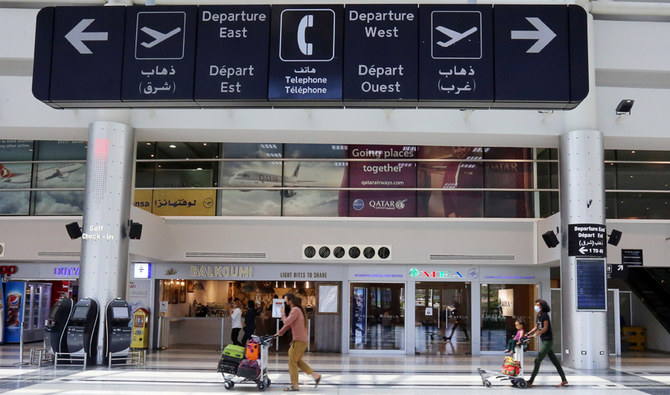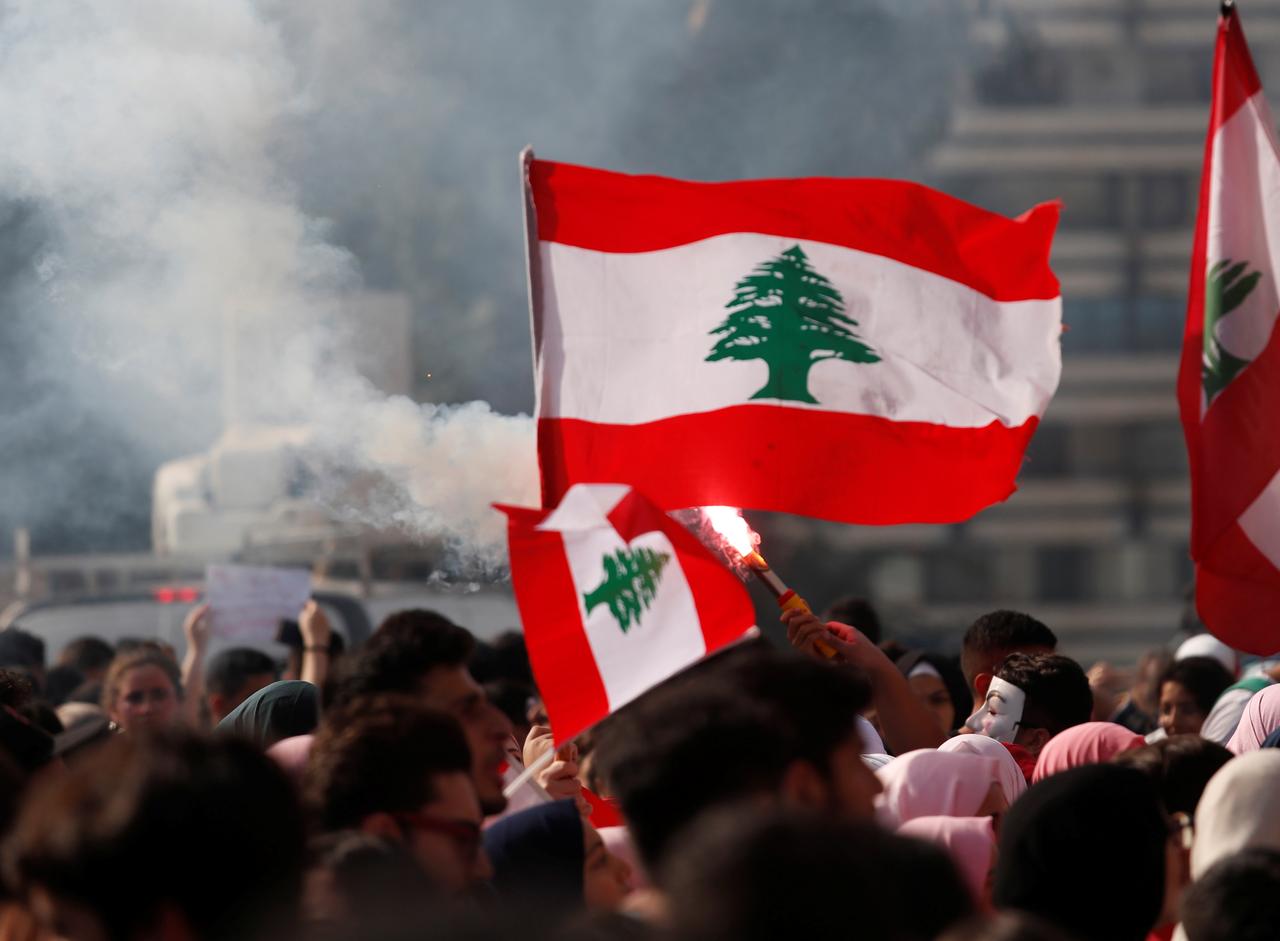By Bassam Zaazaa — .thenational.ae — Israeli forces on Monday said they exchanged fire with Hezbollah fighters along the country’s northern border with Lebanon, in the heaviest fighting between the bitter enemies in almost a year. The Israel army said it foiled a Hezbollah attempt to infiltrate its territory after a cell of four fighters crossed the Lebanese borders and exchanged fire with Israeli forces. The military said it had ordered residents along the border to remain indoors as local media reported an exchange of artillery fire near Shebaa Farms, where explosions were heard. Hezbollah dismissed the Israeli claims about “purported skirmishes”.
But the attack by the Iran-backed militia was in response to the killing of one of its fighters in an Israeli strike on the edge of Damascus last Monday, a Lebanese source told Reuters. The Israeli army said a “security incident” had taken place. It said it had blocked roads and told people to avoid “non-essential” travel. Israel’s public broadcast channel Kan said there had been an exchange of fire. Israeli army spokesman Lt Col Jonathan Conricus said the military thwarted “an attempt to infiltrate into Israel” by a group of armed militants. “We know for certain that they were armed and that they crossed the Blue Line into Israel,” Lt Col Conricus said. The militia rejected the accusations. Hezbollah “confirms that it did not take part in any clash and did not open fire in today’s events until now”, it said. “All that the enemy’s media is claiming about thwarting an infiltration operation from Lebanon into occupied Palestine is completely false.” Andrea Tenenti, spokesman for the UN Interim Force in Lebanon, said the head of mission and force commander, Maj Gen Stefano Del Col, contacted both sides to assess the situation and ease tension. Gen Del Col urged both parties to exercise “maximum restraint”.

by arabnews.com — NAJIA HOUSSARI — BEIRUT: Lebanon’s government was accused on Saturday of botching its response to the coronavirus pandemic and urged to impose a tough new lockdown after the average number of daily cases doubled in a week. The state coronavirus committee of medical specialists has advised closing markets, bars, nightclubs, indoor pools, children’s clubs and sports halls, and banning beach parties and religious and social events for a week. “If Lebanon continues to witness an increase in cases of infection, and as long as the Lebanese do not adhere to the preventive and precautionary measures, then we must get to this level,” Dr. Abdel-Rahman Bizri, a member of the national committee for infectious diseases, told Arab News. The number of cases of COVID-19 infections in Lebanon passed 3,400 on Saturday, and the death toll rose to 46. The number of infections during the past week increased from 75 cases a day to 166. “We are currently wavering between the third and fourth phase in confronting the virus, which means that we reached the stage of societal reproduction because the virus is internally spread and not being transmitted by people coming from abroad,” Bizri said.
by middleeastmonitor.com — The Lebanese Army said Israel violated Lebanon’s airspace 29 times in the past 48 hours, Alaraby English reported. The flagrant breaches were monitored by the United Nations’ Lebanon Peacekeeping Mission. An army spokesperson said: “On Friday, Israeli planes violated Lebanese air space 20 times, and on Saturday 9 times.” Israel has yet […]
by albawaba.com — Marwan Mahfouz was famous for his work with Al-Rahbani family, as he participated in many of their famous musicals, which are still treasured by many, and he continued his cooperation with Ziad Al-Rahbani, who composed many singles for him. His songs written by Ziad Rahabani from the play Sahrieh, who the latter […]
by english.aawsat.com — An Israeli drone crashed inside Lebanon during operational activity along the border, an Israeli military spokeswoman said Sunday. “There is no concern that any information was leaked,” the spokeswoman said. Israel’s Channel 12 reported that the drone crashed after it experienced a technical failure. Israeli Prime Minister Benjamin Netanyahu said Sunday that […]

by arabnews.com — NAJIA HOUSSARI — BEIRUT: The government’s coronavirus follow-up committee has issued a series of recommendations to control the spread of the disease as more infections were recorded in all regions of Lebanon this week. It has recommended closing bars, nightclubs and indoor pools, electronic games centers for children, children’s clubs, sports halls and popular markets, as well as banning beach parties and religious and social events for a week. It said that occupancy in restaurants should not exceed 50 percent of capacity in enclosed areas. The recommendations, not yet endorsed by the relevant ministries, were formulated by specialized doctors. The number of cases of COVID-19 infections in Lebanon on Saturday exceeded 3,400 while the death toll rose to 46. The number of infections during the past week increased from an average of 75 cases to 166 a day.
Dr. Abdel-Rahman Bizri, a member of the national committee for infectious diseases, told Arab News: “If Lebanon continues to witness an increase in cases of infection, and as long as the Lebanese do not adhere to the preventive and precautionary measures, then we must get to this level.” “We are currently wavering between the third and fourth phase in confronting the virus, which means that we reached the stage of societal reproduction because the virus is internally spread and not being transmitted by people coming from abroad,” he said. Lebanon reopened its international airport on July 1 for commercial air traffic, with passengers required to be tested and proved free of the virus.

by Michael Fahy — .thenational.ae — A sharp increase in consumer price inflation is “a potent illustration of the severity of Lebanon’s crisis”, which could deteriorate unless the government takes urgent action, according to emerging markets research company Tellimer. Official figures published earlier this week showed a year-on-year increase in consumer price inflation from 56.5 per cent in May to 89.7 per cent in June as the value of the Lebanese pound continued to fall, causing the prices of food and other basics to rise.
Although Lebanon officially maintains its currency peg at 1,507.5 pounds to the US dollar, its value on the black market has declined by 75 per cent so far this year. The currency fell by 50 per cent from the end of May, according to Patrick Curran, a senior analyst at Tellimer Research, with the pound currently trading at about 8,200 to the dollar. “Lebanon’s US dollar peg has effectively subsidised imports since its inception in 1997, allowing Lebanon to consume beyond its means, but hollowing out industry in the process,” Mr Curran said. He said the “economy is, thus, extremely import-dependent” and cited the most recent gross domestic product figures from 2018 that showed imports accounting for about 40 per cent of the household consumption.
by greekcitytimes.com — A day of mourning for Hagia Sophia (Church of the Holy Wisdom) and for all Christians. All around Greece, church bells are ringing in mourning, while flags are at half-mast. Archbishop Ieronymos of Athens and All Greece stated a few days ago that “the insult and hubris do not attain only Orthodox […]

by arabnews.com — ZAID M. BELBAGI — There was a time when Lebanon’s “Zuama,” or confessional-come-political leaders, held sway in their respective communities. Their role in providing access to opportunities, amenities and basic provisions was central to their support. They were free to politic in Beirut, becoming billionaires in the process, while their supporters muddled through the developmental challenges that are part of any emerging economy. In 2019 this changed, as the Lebanese people took to the streets to voice their opposition to a worsening state of affairs. As the government made only cosmetic changes the Lebanese pound slumped, and just when many people thought the former “Paris of the East” had reached the brink, the global pandemic broke the back of the country while its effete elites looked on from their mountainside second homes. The middle class had been cocooned in luxury apartments surrounded by imported foreign domestic staff, living to almost European standards. Now, however, they find themselves bartering for food and kitchen appliances.
The artificial development of Lebanon’s economy following the Civil War has come unstuck. The Lebanese pound has fallen to a sixth of its previous value, exacerbating the problems faced by the working class, whose modest savings are now worth a pitiful amount. With clinics closed because doctors’ salaries have gone unpaid, importers of medical supplies have gone bust and lifesaving drugs are hard to come by at a time when a health care crisis has taken hold. For those that still have jobs and are being paid, minor procedures cost more than a month’s wages. The cost of basic groceries is almost as crippling. With inflation spiraling out of control and a likely famine on the horizon, the average Lebanese citizen awaits even more challenging times. The current situation has completely shattered the veneer of progress that followed the Taif Agreement that brought the country’s bitter Civil War to an end in 1990. As bullet holes were plastered over, a construction boom gave the impression of a newly confident state.




